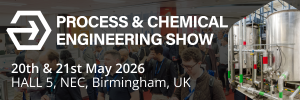Shell outlines plan for renewable chemicals plant in Singapore
The new plant on Pulau Bukom will also be a 550,000 tonnes a year sustainable aviation fuel (SAF) facility using hydrotreated vegetable oil (HVO).
A final investment decision is to be made on the plan, which will use hydrogen made from renewable sources and waste biofuel feedstocks such as used cooking oil and animal fats.
The facility would be part of Shell's plan to pivot away from a crude, fuels-based product slate at its Pulau Bukom manufacturing site towards a rebranded Energy and Chemicals Park hosting a range of low-emissions projects such as a carbon capture and storage hub.
It will be integrated with its other petrochemical complex on Jurong island, located nearby.
It is already moving ahead with a new 50,000 tonnes a year pyrolysis oil upgrader unit at Pulau Bukom, which will start operating in 2023 to boost the quality of liquid derived from hard to recycle plastic landfill waste used in chemicals production.
This forms part of its plan to process 1 million tonnes a year of plastic waste globally, which includes two units in Asia converting waste plastics into pyrolysis oil.
Shell has already announced plans to produce 2 million tonnes a year of SAF by 2025 and for 10% of global aviation fuel sales to be biojet by 2030. This is part of its plan to halve emissions by 2030 from 2016 levels and achieve net zero emissions by 2050.














